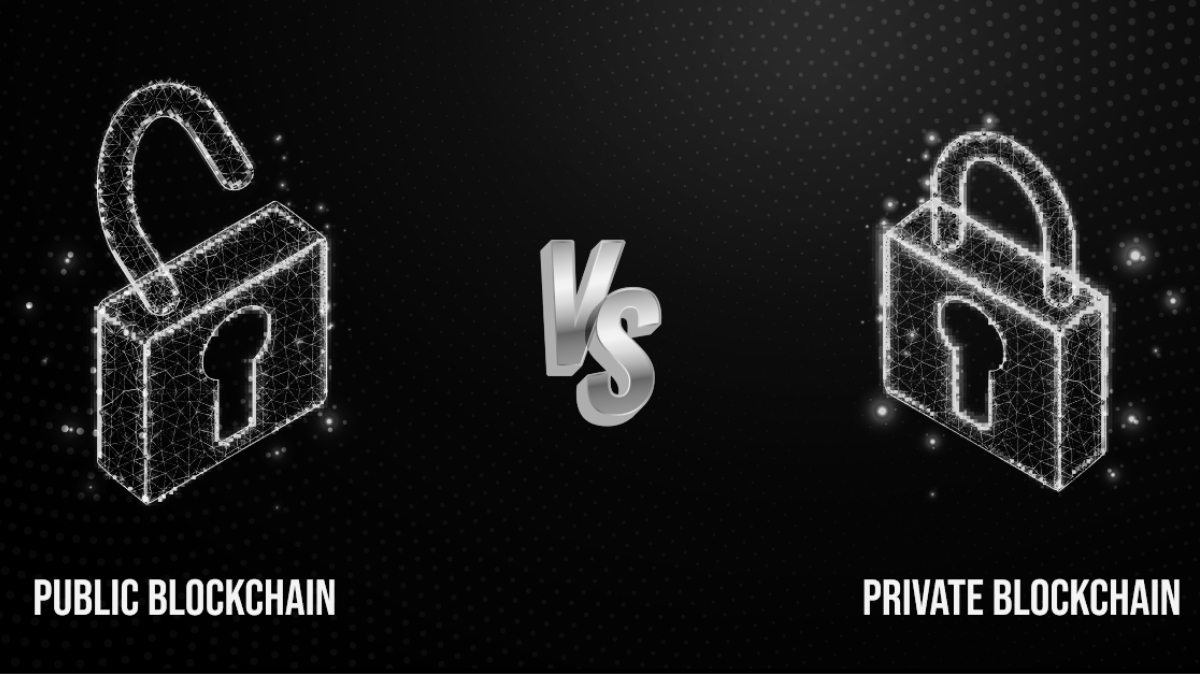Nowadays, blockchain technology is one of the technologies that are being adopted globally. This comparative piece explores public and private chains advantages, usage, ownership, and security.
It is largely speculated that the term ‘Blockchain’ first came into existence in 1980, and David Chaum is regarded for its evolution. However, the pseudonymous creator, Satoshi Nakamoto, allegeldy introduced the concept of blockchain in finance.
What is a Blockchain?
A blockchain is an advanced version of a traditional ledger designed to record transactions and data within a network of computers safely and transparently. The idea of leveraging a traditional ledger system has significantly contributed for its advancement.
For the first time in 1960, a Ledger was operated using mainframe computers to preserve and monitor data.
The birth of the digital ledger significantly contributed to enhanced efficiency, resulting in nominal errors and conveniently storing data. Blockchain technology has advanced digital ledger systems to allow for decentralization and improved safety.
Major Types of Blockchains
With the surged adoption and constant advancement of Blockchain, it has now been categorized based on its usage, features, and ownership.
- Public
- Private
- Hybrid
- Federated
What is a Public Blockchain?
A public blockchain is a decentralized digital ledger that records transactions and information over the network securely and transparently. It is an open-source system available to all of us and operates without centralized control or any intermediary.
Key Characteristics of a Public Blockchains
Public blockchains are different from private chains because of their nature and unique characteristics. It can operates on a decentralized group of computers, collectively referred to as nodes, who cooperate and deliberate to validate record transactions.
The decentralization feature assures that the public blockchain is not governed or controlled by any centralized authority. Public chains are also open-source, meaning the code is readily available to the general public.
Advantages of Public Blockchain
Public blockchains offer dozens of unique features that contribute to their appeal to several applications. Their decentralized structure and advanced cryptographic algorithms provide them with high security, safeguarding them from unauthorized access or manipulation of their records.
The transactions, once processed, are recorded on the blockchain forever and remain unchanged, as well. Anyone can access or see transactions over the public chain but cannot alter any of the details mentioned.
The user base of a public blockchain is global, offering global participation and enabling innovation and collaboration. The decentralization feature makes them immune to censorship, as no single entity can control or influence the network, ensuring the true meaning of being decentralized.
Usage
Public chains have a wide-ranging applicability in a variety of industries. The best examples of public blockchains are the Bitcoin and Ethereum, available worldwide.
Public chains enable speedy, secure, and inexpensive cross-border transactions, which expedites international trade.
Possible Challenges
- One of the major challenges that public blockchains most face is the issue of scalability problems originating from their decentralized nature.
- For more advancement of public chains, there is a need for clear rules and regulations over decentralization.
- Energy consumption is a substantial concern, as mining processes need considerable energy.
- Complexity can be a barrier for non-technical users, making it difficult to understand and navigate public blockchains.
What is a Private Blockchain?
A private blockchain can be defined as a decentralized digital ledger that records transactions and data in a closed network controlled by a single entity or organization. Its functioning is similar to that of a public chain, except it’s accessed by select participants while operated through a centralized authority.
Key Characteristics of a Private Blockchains
In a private chain, the access of who can visit the chain is solely controlled by a centralized authority. The limitation helps to maintain the secrecy of the information available on the private chain.
The scalability improves; according to the centralized nature of the private Blockchain, transactions can be processed quickly and have greater capacity. It has improved scalability because the chain has less congestion and load compared to the public chain.
Advantages of a Private Blockchains
- Faster transaction compared to public chain as the network size and load are comparatively less, resulting in lowering latency and enhancing performance.
- The customized-per-need features enable organizations to design the Blockchain to their needs, guaranteeing a precise fit for their use case.
- Private chains can be designed as per the rules and regulations of the regulatory commissions to avoid any legal tussle.
Private chain are cost-friendly compared to public blockchains; the cost is cut by lowering network size and power consumption, helping to generate more revenue at a lower expense.
Usage
Internal organizational management enables safe and efficient management of sensitive data and transactions, guaranteeing secrecy and integrity. It additionally allows the secure storage of sensitive data, such as personal details or intellectual property, protecting it from unauthorized access or manipulation.
Enterprise resource planning, where they streamline internal operations and supply chain management, improving efficiency and productivity.
Private chains can be designed to meet various industries’ specific requirements, such as finance, healthcare, and more, offering bespoke solutions that address their unique challenges and needs.
Possible Challenges
Although the scalability of private chains far beats that of a public blockchain, they still must enhance transaction speed, as their capability to process large numbers of transactions needs to be improved to support high-volume use cases.
Private blockchains are susceptible to centralization risks, such as weaknesses associated with a single point of failure and the potential for misuse of power, injuring the network’s security, trust, and integrity.
Their interoperability concerns determine private chains’ ability to incorporate with Blockchain or other systems, limiting their connectivity and flexibility.
Regulatory uncertainty over blockchain, cryptocurrencies, and other related products has created uncertainty for private chains, too.
Conclusion
Both public and private chains have their own salient features, drawbacks, usage, and applications. Before choosing a type of blockchain, one has to figure out how to leverage the best-decentralized substitute.
Public blockchains provide decentralized, transparent, and safe solutions perfect for censorship-resistant applications, globally participatory, and unchangeable.
On the other hand, private chains offer to alter the specified ecosystem as needed, as well as practical and secure solutions appropriate for sensitive data storage, industry-specific apps, and internal organizational management.







